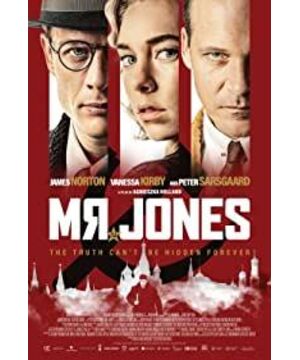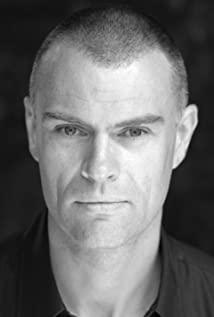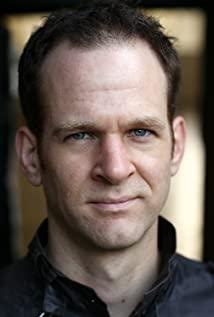Gareth Jones is a young and vigorous 28-year-old British man who wants to be a reporter.
After successfully interviewing Hitler, he wanted to interview Stalin whimsically. So through the editor-in-chief of the Moscow branch of The New York Times, Walter Duranty (Walter Duranty), hoping to arrange for him.
After arriving in Moscow, he checked into a special hotel designated for foreigners. In that obscene bar, he wondered why the world economy entered the Great Depression, but what did the Soviets rely on to spend money? Someone told him: Stalin's money bag is food. So he got rid of the surveillance and went to Ukraine, a rich grain-producing area, to find out.
In the heavy snow, he walked through unmanned villages and saw corpses being pulled on carriages. Some people even threw surviving babies into the carriage. The brown bread in the backpack was snatched by a group of children. A peasant woman cooked some meat to treat him and his two children. He accidentally opened the door and saw the brothers of the two children lying in the snow, with bloody legs. People gave him a piece of bark and told him that there was only this one to eat now.
A nursery rhyme came from the voiceover at this time: "Hunger and cold filled our house. There was nothing to eat and no place to sleep. Our neighbors were insane and ate their children."
In order to cover up the facts, the Stalin government certainly cannot tolerate allowing Western reporters to learn the truth about the Great Famine in Ukraine. He was immediately arrested and deported for espionage.
Jones was the first journalist who dared to resist pressure and published articles in the Western media covering the Great Famine of 1932–33 in the Soviet Union. However, many people at the time still had good illusions about the Soviet Union and were unwilling to believe that this was true. Moreover, from the perspective of national interests and foreign policy, in order to get rid of the economic crisis, the Western society tried its best to establish diplomatic relations with the Soviet Union and conduct commercial trade. Therefore, it is obviously not in the national interest to reveal the truth about the Great Famine in Ukraine. He was squeezed out, cursed, sealed, and considered a lunatic.
Jones looked for a job everywhere, but only arranged for him a cultural column to whitewash the peace. The editor-in-chief said in a classic sentence: "As long as the people can forget our current tragedy."
Ironically, the New York Times reporter Walter Duranti, who lied and concealed the truth, won the Pulitzer Prize for continuing to report directly on the Soviet Union. Jones's friend died on the streets of Moscow because of clues to the famine. Jones himself was assassinated by the Soviet secret police during an investigation in Jehol Province, China two years later.
Reporting the truth is of course in line with the universal values of human society. But the national interest is real money. Therefore, international diplomacy is based on the principle of national interests, not universal values. Therefore, it is often impossible to have both universal values and national interests. It is the choice between the two that has caused the opposition and conflict of public opinion, leading to confusion in many people's minds and debilitating brains.
At the beginning of the film we saw a group of pigs. Our sight shifted from pigs to people, from people to pigs, and from pigs to people. As a result, it seems difficult to distinguish which face is a pig and which face is a human.
"The only blame is that I was born at an untimely time, and I shouldn't have been born in this era. But things are counterproductive. The monsters are invading the world, and the future is at stake."
View more about Mr. Jones reviews











